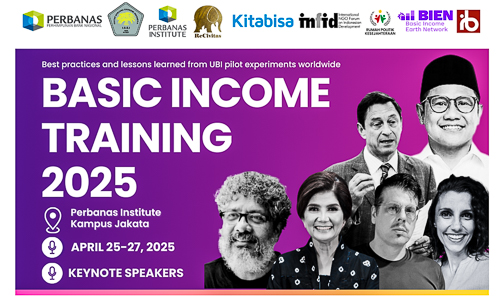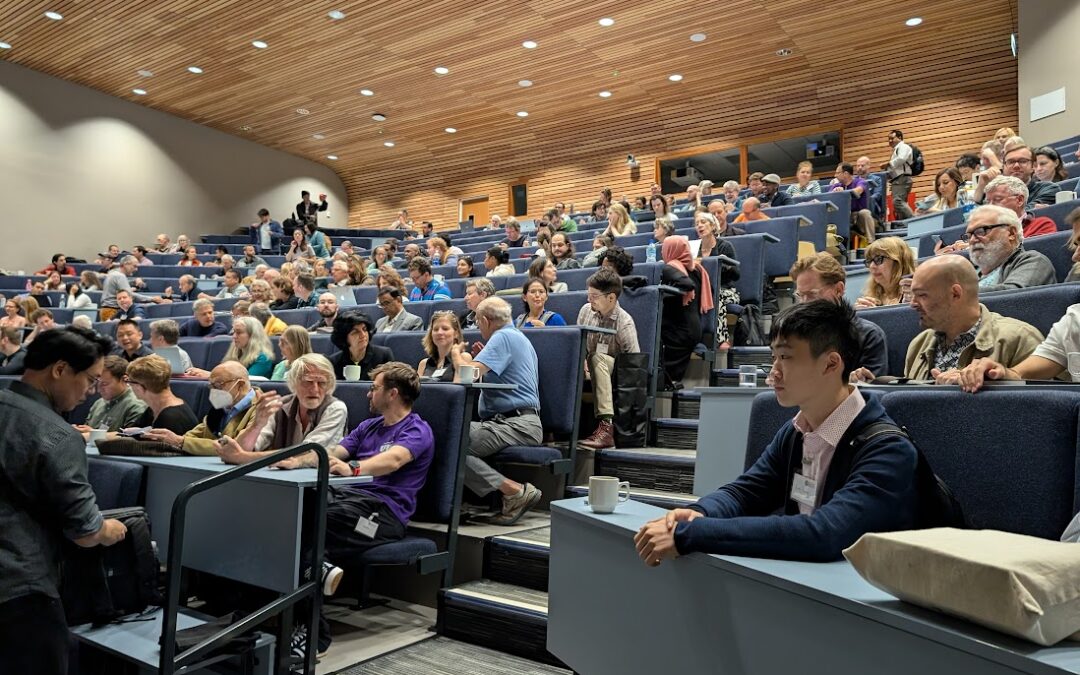by Yannick Vanderborght | Sep 6, 2013 | News, Research
The Self-Employed Women’s Association (SEWA) recently completed a large pilot project on Basic Income in India. The association’s June Newsletter reports on the methodology and findings of the study.
The project randomly assigned 8 out of 20 villages in the study to receive the grant, while the other 12 villages were used as controls. Every adult man and woman in the treatment villages received a grant of 200 Rupees (about US$3 or N$30) per month and every child received 100 Rupees per month. After one year, the amounts were increased to 300 Rupees and 150 Rupees respectively. A total of 6,000 individuals in the 8 villages received the grants for 12 to 17 months. The amount was equivalent to about 20 to 30 percent of household income for the lower-income families in the study.
Researchers conducting the study found that the grants significantly reduced hunger, malnutrition, and illness among recipients. Recipients increased ownership of livestock, reduced, improved school attendance, improved school attendance, and increased investment in agricultural implements. Researchers found no increase in alcohol consumption in the treatment villages. Importantly, the study also found that grant recipients worked more than people in the control villages and that they were three times more likely to start a new business. These results for a positive effect on work effort and earned income (found both the Uganda and the India studies) are confirmed by evidence from cash transfer programs. For example, in South Africa, the Old Age Pension, the Child Support Grant, and the Disability Grant all helped to raise labor force participation and employment.
SEWA, “Unconditional cash transfers: SEWA pilots a unique experiment in Madhya Pradesh,” We the Self-Employed: SEWA’s Electronic Newsletter, No. 50, June 2013.

No. 50, June 2013
by Karl Widerquist | Sep 2, 2013 | Research

Evelyn Forget
From 1974 to 1979, a basic income social experiment known under the name of “Mincome Program” took place in a small Canadian town. Evelyn Forget, researcher, is one of the very few persons who have studied the sociological impact of the guaranteed income experiment. In this interview with Stanislas Jourdan, she explains more about her findings, 30 years after the experiment ended.
Stanislas Jourdan, “A Way to Get Healthy: Basic Income Experiments in Canada,” Basic Income UK, August 7, 2013. This article was first published in french on revenudebase.info

by John Michael | Apr 20, 2025 | Events, News
Basic Income Training 2025 (BIT 2025) is a three-day event dedicated to fostering critical discussions, collaborative learning, and practical design around the concept of Universal Basic Income (UBI) in Indonesia. Held from April 25 to 27, 2025, this intensive training brings together keynote speakers, guest experts, and participants from diverse sectors to examine UBI from multiple perspectives, ranging from theoretical foundations to concrete local pilot initiatives.
This training is proudly organized through the collaboration of several key institutions: IndoBIG Network, BIEN Asia Pacific, Perbanas Institute, Yayasan Perbanas, the Indonesian Economic Scholars Association (ISEI), INFID, RPK, and Kitabisa. Their joint commitment reflects Indonesia’s growing momentum toward reimagining social protection and economic justice. The synergy among these organizations makes BIT 2025 not only a training event but also the starting point of a broader movement.
The sessions are structured to deepen participants’ understanding and engagement. The opening day features welcoming remarks and keynote presentations, followed by discussions on global case studies of the basic income movement. On the second day, speakers will explore the significance of UBI for Indonesia’s socio-economic context and guide participants in designing locally grounded UBI pilot projects. The third day shifts toward forward-looking strategies, focusing on building an actionable roadmap for UBI advocacy. More than a one-time gathering, BIT 2025 will be followed by a series of workshops and the initiation of experimental UBI pilot projects, ensuring that the ideas cultivated during the training evolve into real, actionable programs on the ground.
Please find more details here.

by Dániel Fehér | Apr 16, 2025 | News
A groundbreaking three-year study in Germany has delivered compelling evidence challenging common criticisms of Universal Basic Income (UBI), showing no reduction in work effort while significantly improving mental health and wellbeing.
The Pilotprojekt Grundeinkommen, conducted by the German Institute for Economic Research (DIW Berlin) in collaboration with the Vienna University of Economics and German NGO Mein Grundeinkommen, gave 107 participants €1,200 monthly for three years with no strings attached. Unlike other UBI pilots, this study was entirely privately funded through donations collected by Mein Grundeinkommen, allowing researchers to design an experiment that wouldn’t reduce participants’ existing government benefits.
From over two million applicants, researchers selected approximately 1,700 individuals aged 21-40 living in single-person households with monthly net incomes between €1,100-2,600. From this pool, 107 were randomly assigned to receive the basic income, while the remaining 1,580 formed the control group. Data was collected through semi-annual surveys over the entire three-year period from June 2021 to May 2024, with impressive retention rates—80% of the control group participated throughout the study’s entire duration.
Key Findings Challenge Critics
The most significant finding contradicts the “welfare dependency” argument often used against UBI. “Recipients didn’t withdraw from the labor market or significantly reduce their working hours. This challenges the ‘social hammock’ stereotype that people would stop working if given unconditional money,” explains Jürgen Schupp, scientific lead from DIW Berlin.
Instead of inducing laziness, the cash transfers enabled responsible financial decisions. Recipients saved approximately 37% of the payments and directed around 7% toward charitable causes or supporting family and friends.
Mental Health Benefits Equivalent to Therapy
Perhaps most striking were the substantial improvements in wellbeing. The study documented improvements in mental health by 0.347 standard deviations, purpose in life by 0.250 SD, and life satisfaction by 0.417 SD.
“I was particularly impressed by how UBI positively affected mental health – the effect is comparable to therapy! This is especially relevant after COVID” notes Miriam Witz, project lead at Mein Grundeinkommen.
Autonomy and Pro-Social Effects
The study revealed a pattern of increased social connection and autonomy among recipients. Participants spent more time with friends while maintaining their working hours and reported greater control over their lives.
“The strongest effects were in autonomy and what we call the ‘gender effect’ – the more dependent someone is in society, the stronger the basic income effect. There’s a strong correlation between mental health and dependency structures,” Witz explains.
The Future of UBI Research in Germany
The research team is already planning next steps. “On May 1st, we’re launching a new €500,000 basic income lottery which will also be researched. We’re commissioning a potential analysis of what UBI would mean macroeconomically for society in light of our study’s findings – without false assumptions like decreased work activity,” says Witz.
Schupp adds, “While a basic income isn’t currently on the political agenda, I believe that for the urgently needed restructuring of social systems, all reform options must be considered – including universal basic income.”
Witz, who didn’t begin as a UBI advocate, says the experience changed her perspective: “I’ve come to believe that the ability to say ‘no’ is very important in our society. We need an instrument that enables as many people as possible to be involved in decision-making processes – and in capitalism, that prerequisite is money.”
The findings align with other research showing that financial security, social connection, and autonomy are fundamental to mental health and wellbeing, suggesting that basic income could be a valuable tool for building resilience in modern societies.
This article is based on an interview for Unconditional Basic Income Europe conducted by Dániel Fehér.
More about the study and its results:
Sandra Bohmann, Susann Fiedler, Maximilian Kasy, Jürgen Schupp and Frederik Schwerter: Cash Transfers, Mental Health, and Agency: Evidence from an RCT in Germany (Preliminary research paper)
Sandra Bohmann, Susann Fiedler, Maximilian Kasy, Jürgen Schupp and Frederik Schwerter: Pilotprojekt Grundeinkommen: kein Rückzug vom Arbeitsmarkt, aber bessere mentale Gesundheit (DIW Wochenbericht 15 / 2025, S. 221-229)
Pilotprojekt Grundeinkommen (in German)
Blog in English

by Tyler Prochazka | Mar 13, 2025 | News
Research presented at the 2024 BIEN Congress explores China’s possible shift from existing social assistance programs toward Universal Basic Income (UBI), raising insights into poverty alleviation and social equity.
Conducted by interns Zhao Muge, Wu Yifan, and Huang Xinhe under the guidance of scholars Cheng Furui and Ye Jiabin, the study titled “Can China Move Towards the UBI?” evaluates China’s current Minimum Livelihood Guarantee (Dibao) and targeted poverty alleviation policies, proposing UBI as a potential next step.
The study highlights that China’s Dibao policy, intended to provide a minimum living allowance to low-income households, initially showed strong results in poverty reduction—particularly evident in rural areas. For example, a 1 percent increase in rural Dibao expenditure corresponded to a 6.8 percent reduction in poverty in regions like Shanxi Province from 2008 to 2018. However, over time, Dibao’s effectiveness declined due to welfare dependency, stigmatization of recipients, and administrative inefficiencies, including inadequate adjustment mechanisms for benefit standards and cases of resource misallocation. From 2015-2016, the reduction in the poverty rate in some parts of China was less than 30 percent.
Transitioning from subsistence allowances to targeted poverty alleviation was a necessary step to improve the efficiencies of the program, the study’s authors argued. The number of rural Dibao beneficiaries began to surpass urban beneficiaries around 2007 and peaked in 2013, prompting China to implement targeted poverty alleviation policies. From 2018 to 2020, the number of rural beneficiaries vastly exceeded urban beneficiaries, emphasizing the critical need for interventions targeting rural poverty. Next, the study discussed the advantages of targeted poverty alleviation compared to subsistence allowances. Case studies showed that targeted poverty alleviation can be implemented through infrastructure development, industry support, education, and other means. Compared to Dibao, targeted poverty alleviation places more emphasis on enabling self-development through comprehensive measures. As a result, it has a broader scope, more projects, and is more comprehensive and in-depth, leading to sustainable poverty alleviation.
The research also explores the theoretical and practical groundwork supporting UBI implementation in China. Theoretically, UBI aligns with China’s goal of common prosperity and narrowing the wealth gap. Practically, the COVID-19 pandemic provided an experimental foundation through widespread government-issued consumption vouchers, which effectively stimulated local economies, with economic multipliers ranging up to tenfold in certain cases.
The paper outlines several feasible pathways for China’s gradual implementation of UBI: using dividends from carbon emissions trading, establishing a permanent citizen trust fund financed by state-owned enterprises, adopting negative income tax schemes to enhance employment incentives, and distributing subsidies adjusted according to regional poverty lines and demographic factors.
Despite recognizing challenges, such as funding sources, potential increased tax burdens, and the risk of disincentivizing labor participation, the research strongly supports the viability and potential benefits of UBI. Ultimately, the authors conclude that by carefully addressing these challenges, China could successfully integrate aspects of UBI into its social welfare system, significantly reducing poverty, enhancing social equity, and driving sustainable economic growth.






